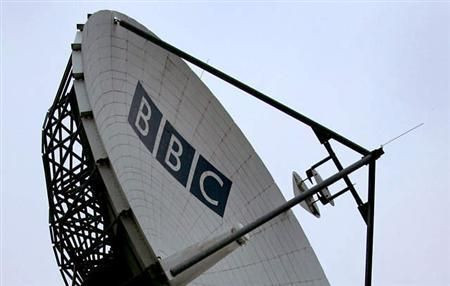BBC Wants To Increase Diversity Amid Scrutiny Of UK Media Industry’s Largely White Workforce

Amid growing criticism the U.K. media industry does not reflect the country’s diversity, the BBC has established two initiatives to attract and promote black and Asian talent, but some are questioning whether the plans go far enough. The public broadcaster said Monday it has set a target to increase on-air minority representation to one in six people, or 15 percent, within three years, an increase of 5 percent from the current proportion.
If the target is met, BBC talent would better reflect diversity throughout the U.K., where 14 percent of the population is non-white, the most recent census data indicate. But those numbers don’t tell the whole story. In London, where much of the U.K. media industry is concentrated, the black and Asian population is 40 percent, and some in the industry have said minority media representation should more closely align with that figure.
Samantha Asumadu, founder of the U.K. nonprofit Media Diversified, said the BBC’s plan is a step in the right direction, but that it is not likely to address some of the more long-term systemic issues facing minority media workers.
“Whilst any announcement from a major broadcaster taking measures to address the lack of diversity in their structures is encouraging ... the latest from the BBC does not go far enough,” she said. “Considering the BAME [black, Asian and minority ethnic] population of London, where most of the media are based, is 40 percent, the BBC should be aiming for far higher than 15 percent at all levels for London. The new employees will not be plugged in to the system of patronage their white counterparts have been favored with after years in their positions, so when it comes to redundancies for any reason it’s likely they will be the first out.”
In June, when BBC Director-General Tony Hall first announced the plans, British actor and comedian Lenny Henry (“The Wire”) expressed doubt the effort would be effective in an industry that has been “hemorrhaging” talent to the United States.
“It has the greatest of intentions but with massive respect, it is based on an old model that hasn’t worked,” Henry told MPs on the culture, media and sport select committee, the Guardian reported. “Increased training and increased development funds do not deliver change ... but jobs do.”
Minority representation in the U.K. media is low on virtually all fronts, and in some cases it’s getting worse. Minorities make up only about 5.4 percent of the broadcast workforce, and behind the camera, the number of those working in the industry has declined 30 percent since 2006, the BBC reported. A 2012 survey by the New Statesmen found ethnic minorities are largely absent from “senior executive roles and staff jobs in the media.”
The BBC’s initiative includes two plans: the Senior Leadership Development Program, which offers minority workers experience alongside Hall and his leadership team, and the Assistant Commissioner Development Program, which is seeking six minority candidates in comedy, drama, factual, daytime and children's programming.
Read more about the initiative here.
Got a news tip? Email me. Follow me on Twitter @christopherzara.
© Copyright IBTimes 2024. All rights reserved.






















